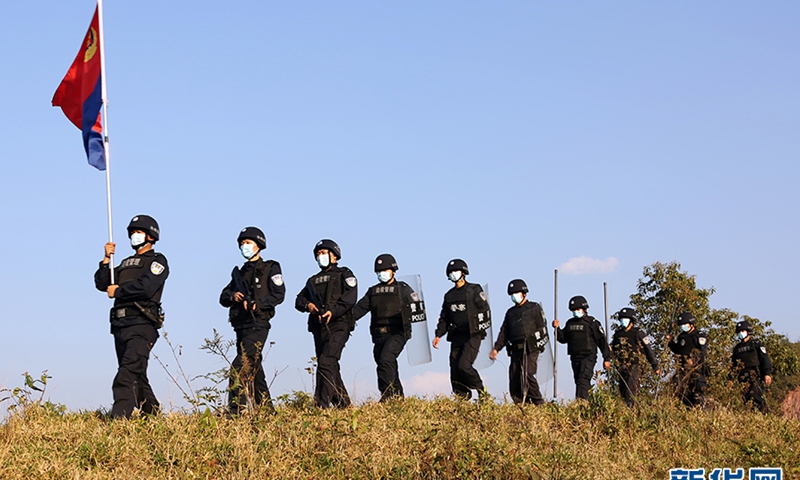Telecommunications fraud suspects pose a threat to China-Myanmar border city amid epidemic resurgence

File Photo:Xinhua
The fourth round of epidemic resurgence in China-Myanmar border city Ruili shed light on how border-crossing criminal suspects including those engaging in telecommunications fraud pose a threat to the local anti-epidemic mission, local government sources revealed.Since July 4, Ruili has detected 53 cases positive for COVID-19, 49 of them were confirmed patients, according to data registered by health authorities reported as of Sunday.
The Global Times learnt from a government source that despite Ruili’s ramped up efforts to crack down on stowaways, some people are still trying to illegally cross the border from Ruili, a city which lies along China's border with Myanmar.
“Suspects who engage in telecommunications fraud or gambling thought they were virus free. They did not want to be caught by the police, that’s why they ended up crossing the border illegally. Their arrival poses great threats to the local epidemic prevention plan,” a government official in Ruili told the Global Times on condition of anonymity on Sunday.
The possibility that those people can spread COVID-19 to local residents cannot be ruled out, the official said. He revealed that three border crossers were caught by cameras as they were trying to climb over the iron wires along the border a few days ago.
A statement from local anti-epidemic prevention and control team obtained by the Global Times showed that the mutated virus strain Delta was detected after a gene sequencing of five recent imported COVID-19 cases.
Those five were engaged in cross-border telecom fraud cases, the official who wished to remain anonymous confirmed.
The genome sequence from seven positive samples of domestically infected COVID-19 cases is also highly homologous to the Delta strain, an official from the Ruili government told a press conference last Wednesday.
Although the border between China and Myanmar has been closed due to the pandemic, illegal border crossings have not stopped. To prevent and catch illegal border crossers, Ruili has installed iron wires and cameras along the border. The city also arranged for staff and helicopters to patrol along the walls, the Global Times learnt on Sunday.
Ruili and Myanmar share a 170-kilometer border, on which was set 545 frontline checking points. The borderline witnesses 3,565 people patrolling 24 hours in shifts, local media reported.
In addition, Ruili signed agreements with taxi drivers and drivers from car-hailing platform Didi to prevent them from carrying stowaways. Violators face penalties, media reported in September 2020.
Instead of crossing the border illegally, some suspects choose to confess to border police. “Almost 10 suspects confess to police at the border checkpoints every day recently,” the anonymous official said.
Those who confess to the police are immediately quarantined and given COVID-19 tests by local epidemic prevention and control personnel. In principle, they should have no chance to contact with and spread the virus to other locals, the official said.
Illegal border crossing is happening as infections in neighboring countries surge and the local government strengthens efforts to notify those people engaging in gambling or telecommunications fraud cases to return to the Chinese border.
Yunnan provincial police department in June released a notice in which it urged the fugitives who are suspected of illegally leaving the country or engaging in cross-border telecommunications and internet fraud, gambling and money laundering against China toreturn to China as soon as possible and surrender themselves to the police for leniency.
Police in Yunnan have been cracking down on cross-border crimes for more than a year. In 2020, the procuratorate department in Yunnan seized 13,380 people who committed cross-border crimes, suing 13,022 of them. Among them, 5,665 were detained for illegally crossing the border, 2.6 times higher than the year before, local news website yunnan.cn reported in January.



